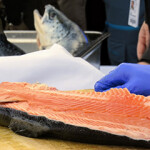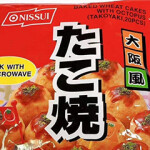Tuna canners defeat Prop 65 appeal
The "big three" tuna companies on Wednesday became winners in a California courtroom yet again, fending off the state's appeal to have mercury warnings placed on tuna can labels.
Former state Attorney General Bill Lockyer sued StarKist, Bumble Bee and Chicken of the Sea in 2004, claiming the state's controversial law, Proposition 65, required tuna labels to warn consumers of the dangers of consuming a product containing methylmercury, a naturally occurring neurotoxin. Prop 65 requires food manufacturers to warn consumers of products containing potentially hazardous ingredients.
But after a six-week trial in 2007, the tuna companies were handed a complete victory, a ruling now affirmed. According to the Court of Appeals ruling issued on Wednesday, "substantial evidence supports the trial court's finding that methylmercury in tuna is naturally occurring, thereby removing the Tuna Companies from the reach of Proposition 65."
Forrest Hainline, an attorney with San Francisco law firm Goodwin-Procter, which represents the three tuna companies, told SeaFood Business on Wednesday that the San Francisco Court of Appeals issued a "well reasoned" opinion that relied on scientific evidence.
"The Prop 65 battle is won," Hainline said. "There's been a lot of mythology about how methylmercury gets into the ocean. Now that one myth is gone, hopefully others will go by the wayside as well."
In January, Hainline said the state's legal team abandoned its quest for warnings on the tuna cans themselves, opting instead to push the state to require retailers to post the U.S. Food and Drug Administration and Environmental Protection Agency joint 2004 consumer advisory on the risks of mercury from seafood consumption. "The FDA doesn't think it's the appropriate thing to do," Hainline said. The National Fisheries Institute of McLean, Va., applauded the ruling. NFI operates the U.S. Tuna Council, a group representing the three tuna companies.
"The courts have now spoken on this issue twice," said NFI President John Connelly. "Tuna is a safe, healthy product and one of the most inexpensive forms of protein for American families - attempts to depict it in any other light do a disservice to consumers in California and at large."
Hainline said the court had to adhere to the substantial evidence rule to support the trial judge's ruling and that scientific evidence shows the mercury in tuna and other ocean fish is naturally occurring and hasn't changed in over 100 years.
"[This opinion] may take some of the steam from those behind the mercury scare," said Hainline. "What they really want to do is stop coal-firing power plants."
The Center for Consumer Freedom, in its 2008 report "Tuna Meltdown," argued that due partially to the government's methylmercury warning, approximately 4.4 million U.S. households earning $30,000 or less completely eliminated canned tuna purchases between 2000 and 2006. During those years, says the Washington, D.C., group, women in those households gave birth to nearly 260,000 children.
The 2004 FDA-EPA advisory warns pregnant women and children to avoid eating swordfish, king mackerel, tilefish and shark because of possible elevated levels of methylmercury in those long-living predatory species. The FDA recommends that consumers eat up to 12 ounces, or two average meals a week, of fish and shellfish that are low in mercury, such as shrimp, canned light tuna, salmon, pollock and catfish.
"Canned tuna is one of the best sources of essential omega-3s, key to baby brain and eye development as well as heart heath, and is an affordable contribution to a healthy diet. It is simply not a product that California, or any other state, should expend resources warning consumers away from," said Jennifer McGuire, NFI's registered dietitian.
To submit feedback, click here .





Share